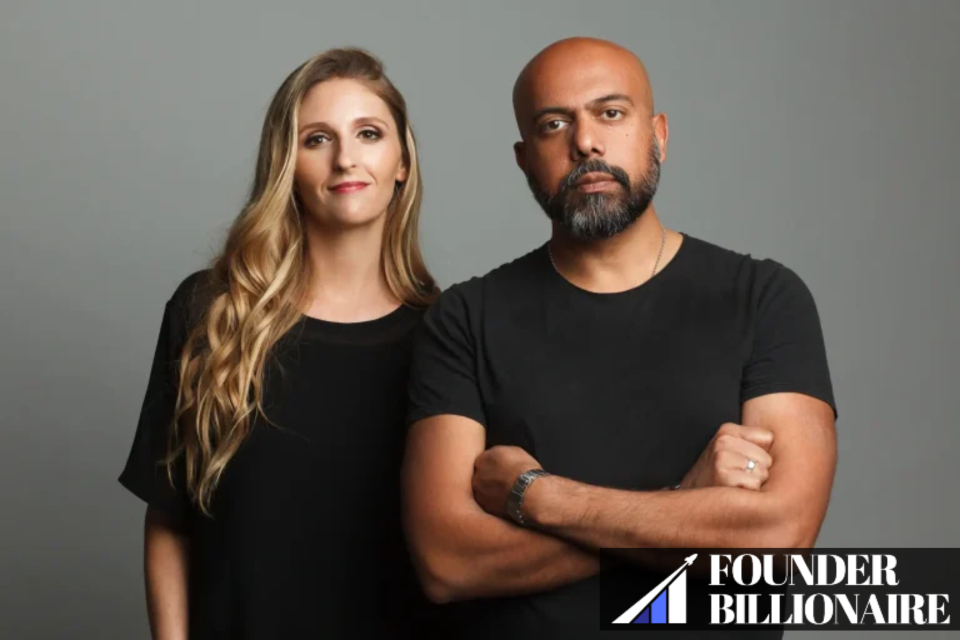Imran Chaudhri and Bethany Bongiorno, once key figures at Apple, have become emblematic of a new wave of tech founders who blend deep industry expertise with a bold vision for the future. Their journey from Apple’s hallowed halls to founding Humane, a startup aiming to redefine our relationship with technology, offers a compelling narrative of ambition, innovation, and hard-earned lessons for aspiring entrepreneurs.
The Founders: Apple Roots and a Human-Centric Vision
Imran Chaudhri spent over two decades at Apple, shaping the design and user experience of iconic products like the Mac, iPod, iPhone, iPad, and Apple Watch. His design philosophy centers on putting the human experience at the forefront, a principle that would later become the cornerstone of Humane. Bethany Bongiorno, a software engineering leader at Apple, played a pivotal role in launching the original iPad and managing software projects for iOS and macOS. Their partnership, both personal and professional, was forged in the crucible of Apple’s high-stakes innovation culture.
After leaving Apple in 2016, Chaudhri and Bongiorno recognized a growing societal concern: technology, especially smartphones, was beginning to overshadow human connection. They envisioned a future where technology would enhance, not dominate, our lives—a vision that became the genesis of Humane.
Building Humane: A Startup with a Mission
Founded in 2018, Humane set out to create devices that would integrate artificial intelligence seamlessly into daily life. The company’s flagship product, the Ai Pin, was conceived as a wearable, screenless device designed to reduce screen time and foster more meaningful human interactions. Unlike traditional smartphones, the Ai Pin relies on voice commands, gestures, and a laser projection system that displays information on the user’s palm, offering a more ambient and less intrusive computing experience.
Humane’s approach was deeply influenced by the founders’ belief in responsible, human-centered design. Privacy and user control were prioritized, with features like a “Trust Light” to indicate when sensors were active and a strict policy against always-on recording. The device was powered by advanced AI models through partnerships with OpenAI and Microsoft, and ran on a proprietary operating system, Cosmos.
The Vision: Redefining Personal Technology
Chaudhri and Bongiorno’s vision for Humane was to create technology that amplifies human potential without overshadowing our humanity. They believed that the future of computing should be ambient, context-aware, and respectful of user presence. The Ai Pin was not intended to replace smartphones outright, but to offer a new paradigm—one where technology fades into the background, supporting users only when needed.
Their mission resonated with investors and the tech community, attracting over $230 million in funding from industry leaders and venture capitalists. The anticipation surrounding the Ai Pin reflected a broader desire for innovation beyond the smartphone era.
Lessons for Aspiring Founders
The rise and eventual challenges faced by Humane offer several key lessons for entrepreneurs:
- Market Readiness Matters: Humane’s ambitious vision sometimes outpaced consumer readiness. The Ai Pin’s advanced features were novel, but many users were not prepared to integrate such technology into their daily routines. Thorough market validation and incremental rollouts can help bridge the gap between innovation and adoption.
- Customer Obsession Over Product Obsession: Humane’s journey underscores the importance of listening to users. Early feedback highlighted usability and practicality issues, but the company was slow to pivot. Successful startups prioritize customer needs, iterating rapidly based on real-world feedback rather than relying solely on internal vision.
- Financial Sustainability: Despite significant initial funding, Humane struggled to maintain financial momentum. Robust financial planning, including contingency strategies and diversified funding sources, is essential for long-term viability.
- Humility and Adaptability: Big-company experience is valuable, but startup success requires humility—the willingness to test, learn, and pivot. Founders must be open to course corrections and responsive to market signals.
- Responsible Innovation: Humane’s commitment to privacy and ethical AI design set a new standard in the industry. Aspiring founders should consider not just what technology can do, but how it impacts users and society at large.
Imran Chaudhri and Bethany Bongiorno’s journey from Apple to Humane is a testament to the power of vision, expertise, and the courage to challenge the status quo. While Humane’s story includes both bold innovation and hard lessons, it offers invaluable insights for the next generation of founders. The future of technology will be shaped not just by what we build, but by how thoughtfully we build it—with humanity at the center.


